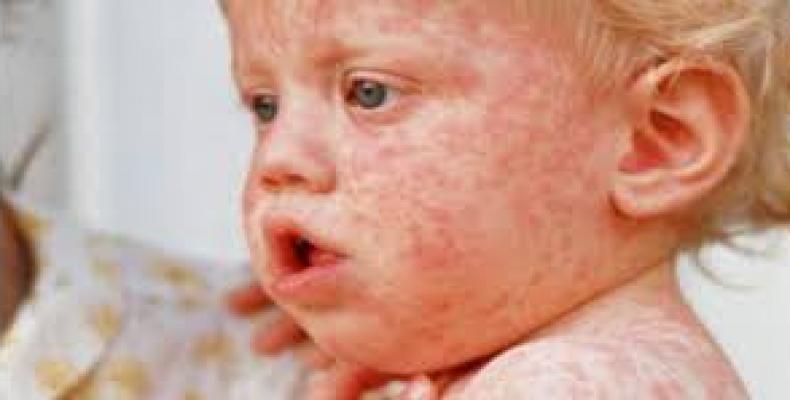Ottawa, April 24 (RHC)-- A senior doctor is urging Canadians to get their measles shots as the number of confirmed cases had climbed to 13 in Nova Scotia. In a news release issued in Ottawa, Dr. Gaynor Watson-Creed, deputy chief medical officer of health, reminded Nova Scotians to check both their own and their family’s immunization status.
“Having a highly vaccinated population helps prevent the spread of measles. The slow climb in cases indicates we may be approaching the peak in the outbreak, but we are remaining diligent in our efforts to contain cases,” Watson-Creed said. Nova Scotians born after 1970 can receive two doses of measles vaccine at no cost through the publicly-funded immunization program.
Some of the confirmed measles cases include health-care workers. Preventative measures have been put in place to combat the spread of the disease and protect both staff and patients at medical facilities. Risk to the general public remains low at this time, and most people are protected from a measles infection through vaccination. These recent cases are unrelated to the previous outbreak that affected seven people last month in the province.
The “anti-vaxxer” movement – which caught fire in Europe after British doctor Andrew Wakefield claimed that the MMR (measles, mumps, rubella) vaccine helped cause autism – has converted believers and created skeptics. As a result of Wakefield's movement, measles cases increased in Europe and have eventually spread to North America.
According to the World Health Organization, Romania has seen nearly 2,000 cases of measles since February 2016. The country’s vaccination rate is 86 percent, well below the 95 percent recommended for “herd immunity” against infectious disease. Seventeen children, who were not vaccinated, have reportedly died in this outbreak. Romania has Europe’s highest measles infection rate, and its fifth-lowest vaccination rate.
In 2013, UNICEF expressed concern about the spread of anti-vaccine messages on social media networks in central and eastern Europe. The region had successfully kept diseases like polio and measles at bay for many years, but, UNICEF warned, “this has led to complacency toward the diseases and has unfortunately made vaccines, rather than the diseases, the focus of debate and discussion.”
Twenty-two of the 32 European countries that have had measles cases since February 2016 have vaccination rates below the recommended 95 percent. Measles symptoms include a fever, runny nose and cough, red eyes, a red, blotchy rash on the face and body, drowsiness, feeling irritable, and small white spots that may show up in the mouth and throat. While most people fully recover within 2-3 weeks, measles can have serious complications, which are more likely in infants, pregnant women and those with weakened immune systems.
The U.S. Centers for Disease Control in Atlanta warns that about 10 percent of children with measles get ear infections, which can lead to hearing loss.
Measles Outbreak Raise Concern in Canada and Europe

Artículos Relacionados
Comentarios
Deja un comentario
Todos los campos son requeridosMás Vistas
- En La Habana desmantelan plantación de marihuana
- Joven cantante bayamés interpreta tema dedicado a la amistad
- Rechaza presidenta de México bloqueo de Estados Unidos contra Cuba
- Alcalde moscovita confirma un servicio de taxis Moskvich en Cuba
- Aeropuerto de ciudad cubana de Santa Clara inaugura vuelos desde Lisboa en 2025

